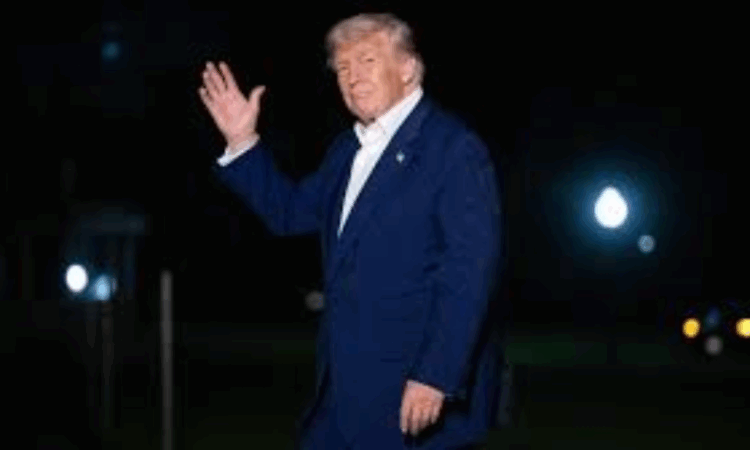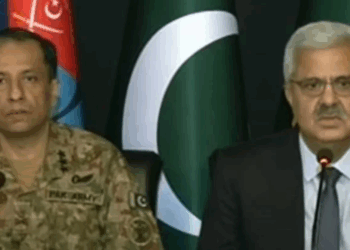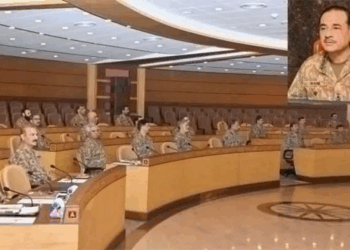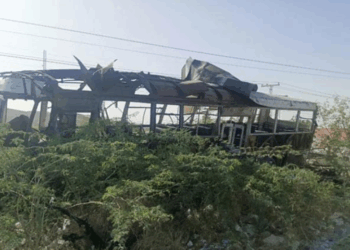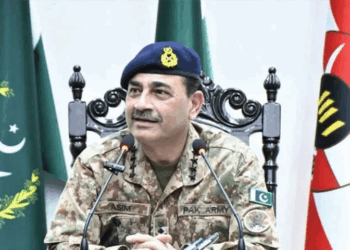Washington, May 17, 2025: U.S. President Donald Trump has drawn global attention for his self-proclaimed diplomatic success in diffusing what he called an “imminent nuclear war” between India and Pakistan. Fresh from a high-profile tour of the Middle East — where he secured over $10 trillion in deals with Saudi Arabia, Qatar, and the UAE — President Trump spoke with Fox News to reflect on recent geopolitical developments.
While much of the interview focused on the Middle East and prospects for peace following Russia-Ukraine talks in Istanbul, President Trump repeatedly returned to one key issue: his role in averting a catastrophic conflict between the two nuclear-armed South Asian neighbors.
Tensions reached a boiling point following the May 6 Pahalgam incident in Indian Illegally Occupied Jammu and Kashmir. Despite offering no concrete evidence, New Delhi blamed Islamabad and launched an unprovoked military offensive. In response, Pakistan retaliated forcefully, downing six Indian fighter jets — including three Rafales — neutralizing an S-400 missile defense system, and compromising key Indian defense networks.
For the first time in decades, India was visibly shaken by what many viewed as an unprecedented response from Pakistan — often seen globally as the underdog in the bilateral equation. This sharp escalation sparked fears that Indian Prime Minister Narendra Modi, under pressure from nationalist factions and a belligerent media, might take extreme retaliatory measures.
The United States, a long-time ally of India, swiftly intervened. President Trump ordered Secretary of State Marco Rubio to engage with top Indian officials and reach out to Pakistan to prevent further escalation. Within hours, both nations restored hotline communication and agreed to a ceasefire — a move that brought immense relief to a tense international community.
Describing the intervention as “the biggest success I have ever been credited for,” Trump emphasized the gravity of the situation. “These aren’t small players. These are major nuclear powers,” he told the Fox News host. “Things were escalating — tit for tat, missile for missile — until we were on the brink of what I call the ‘N-word.’ Nuclear. And that’s the worst outcome imaginable.”
Trump credited diplomacy and trade talks for breaking the impasse. “The hatred was intense,” he said. “But I told both sides — we’re going to talk about trade. I’m using trade to make peace.”
As the conversation shifted, President Trump made an unexpected and notable remark about Pakistan: “We cannot forget them. It takes two to tango. I had a great conversation with Pakistan.”
He went on to praise the country and its people, highlighting untapped trade potential: “They’re brilliant people. They make incredible products. Yet, we hardly trade with them. I told my team — reach out, let’s talk, let’s trade. I’m a man of my word.”
This unusually warm tone toward Pakistan has surprised international diplomats, especially given the historically security-focused nature of U.S.-Pakistan relations.
Despite reaffirming India’s significance to U.S. interests — with bilateral trade touching nearly $129 billion in 2024 — President Trump was critical of New Delhi’s trade practices. “India is one of the highest tariff nations in the world,” he said. “They make it almost impossible to do business. But now they’re willing to cut 100% of tariffs for the U.S.”
Observers agree that the roles played by Prime Minister Shehbaz Sharif, Chief of Army Staff General Asim Munir, and Foreign Minister Ishaq Dar were instrumental in Pakistan’s response — both militarily and diplomatically. Dar, known more for his expertise in finance, has now proven his mettle on the foreign policy front, guiding Pakistan’s envoys in the U.S., UN, UK, Saudi Arabia, Turkiye, and Iran.
However, experts caution Islamabad against complacency. While the current goodwill is notable, India remains one of Washington’s top strategic partners. Pakistan must seize this opportunity to build a long-term economic relationship with the U.S., grounded not just in antiterrorism cooperation but in robust trade and strategic dialogue.


